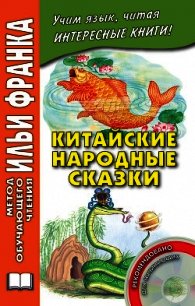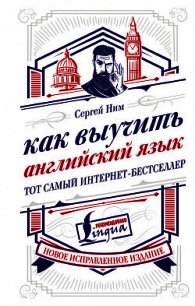Английский язык с Энтони Хоупом. Узник Зенды / Anthony Hope. The Prisoner Of Zenda - Хоуп Энтони
For he fought a duel (it was considered highly well bred of him to waive all question of his rank) with a nobleman, well known in the society of the day, not only for his own merits, but as the husband of a very beautiful wife. In that duel Prince Rudolf received a severe wound, and, recovering therefrom, was adroitly smuggled off by the Ruritanian ambassador, who had found him a pretty handful. The nobleman was not wounded in the duel; but the morning being raw and damp on the occasion of the meeting, he contracted a severe chill, and, failing to throw it off, he died some six months after the departure of Prince Rudolf, without having found leisure to adjust his relations with his wife – who, after another two months, bore an heir to the title and estates of the family of Burlesdon.
This lady was the Countess Amelia (этой дамой была графиня Амелия), whose picture my sister-in-law wished to remove from the drawing-room in Park Lane (чей портрет моя невестка хотела убрать из гостиной /дома/ на Парк-Лейн; picture – картина; портрет); and her husband was James, fifth Earl of Burlesdon and twenty-second Baron Rassendyll (а мужем ее был Джеймс, пятый граф Берлисдон и двадцать второй барон Рассендил), both in the peerage of England, and a Knight of the Garter (пэр Англии и Кавалер ордена Подвязки; both – оба, и тот и другой; peerage – сословие пэров, высшая знать; звание пэра; knight – рыцарь; кавалер одного из высших английских орденов). As for Rudolf, he went back to Ruritania (а что до Рудольфа, то он вернулся в Руританию), married a wife, and ascended the throne (женился: «женился /на/ жене» и взошел на трон), whereon his progeny in the direct line (на котором его потомки по прямой линии) have sat from then till this very hour (сидят с тех пор по сей день: «по это самое время»; hour – час; время, период) – with one short interval (с одним недолгим перерывом). And, finally, if you walk through the picture galleries at Burlesdon (и, наконец, если вы пройдете по картинной галерее в Берлисдоне), among the fifty portraits or so of the last century and a half (среди примерно пятидесяти портретов, /написанных/ за последние полтора века; or so – около того, приблизительно; half – половина), you will find five or six, including that of the sixth earl (вы обнаружите пять или шесть /портретов/, включая /портрет/ шестого графа), distinguished by long, sharp, straight noses and a quantity of dark-red hair (отличающихся длинными острыми прямыми носами и темно-рыжими шевелюрами; quantity – количество; множество, большое количество; hair – волос; волосы); these five or six have also blue eyes (у этих пяти или шести также голубые глаза), whereas among the Rassendylls dark eyes are the commoner (тогда как у Рассендилов чаще встречаются: «распространены» темные; common – общий; общепринятый, распространенный).
This lady was the Countess Amelia, whose picture my sister-in-law wished to remove from the drawing-room in Park Lane; and her husband was James, fifth Earl of Burlesdon and twenty-second Baron Rassendyll, both in the peerage of England, and a Knight of the Garter. As for Rudolf, he went back to Ruritania, married a wife, and ascended the throne, whereon his progeny in the direct line have sat from then till this very hour – with one short interval. And, finally, if you walk through the picture galleries at Burlesdon, among the fifty portraits or so of the last century and a half, you will find five or six, including that of the sixth earl, distinguished by long, sharp, straight noses and a quantity of dark-red hair; these five or six have also blue eyes, whereas among the Rassendylls dark eyes are the commoner.
That is the explanation, and I am glad to have finished it (это – пояснение, и я рад, что закончил его): the blemishes on honourable lineage are a delicate subject (недостатки знатного рода = скандалы в благородном семействе – щекотливая тема; blemish – недостаток; пятно, позор; lineage – происхождение, родословная; род; subject – предмет; тема /разговора/), and certainly this heredity we hear so much about (и, определенно, эта наследственность, /о которой/ мы так много слышим) is the finest scandalmonger in the world (самая большая сплетница в мире; fine – прекрасный, превосходный; большой, крайний /эмоц. – усил./); it laughs at discretion, and writes strange entries between the lines of the “Peerages” (она насмехается над благоразумием и вписывает = делает удивительные заметки между строк Книги пэров; entry – вход; отдельная запись, отметка /в книге, документе и т. п./; Peerage – книга пэров /родословная знатных родов/).
It will be observed that my sister-in-law, with a want of logic (следует отметить, что моя невестка от недостатка логики; want – недостаток, нехватка) that must have been peculiar to herself (что, должно быть, свойственно /лично/ ей; peculiar – специфический, особенный; присущий, свойственный) (since we are no longer allowed to lay it to the charge of her sex (поскольку нам больше не позволяется обвинять в этом ее пол; to lay smth. to smb.’s charge – обвинять кого-л. в чем-л.)), treated my complexion almost as an offence (относилась к моей внешности почти как к преступлению; to treat – обращаться, обходиться; относиться, рассматривать; complexion – цвет лица /тж. волос и глаз/; offence – оскорбление; проступок, правонарушение) for which I was responsible (за которое я несу ответственность), hastening to assume from that external sign inward qualities (спеша судить по внешним признакам о внутренних качествах; to assume – предполагать, допускать) of which I protest my entire innocence (в которых я совершенно не виноват: «в которых я заявляю свою полную невиновность»); and this unjust inference she sought to buttress (и этот несправедливый вывод она пыталась подкрепить; to seek to do smth. – пытаться что-л. сделать; to seek – искать, разыскивать; to buttress – поддерживать, подпирать; подкреплять /фактами/) by pointing to the uselessness of the life I had led (указанием на бесполезность той жизни, которую я вел). Well, be that as it may, I had picked up a good deal of pleasure and a good deal of knowledge (ну, как бы то ни было, я находил множество развлечений и /приобрел/ не меньше знаний; to pick up – поднимать, подбирать; находить; a good deal – очень много, изрядное количество).
That is the explanation, and I am glad to have finished it: the blemishes on honourable lineage are a delicate subject, and certainly this heredity we hear so much about is the finest scandalmonger in the world; it laughs at discretion, and writes strange entries between the lines of the “Peerages”.
It will be observed that my sister-in-law, with a want of logic that must have been peculiar to herself (since we are no longer allowed to lay it to the charge of her sex), treated my complexion almost as an offence for which I was responsible, hastening to assume from that external sign inward qualities of which I protest my entire innocence; and this unjust inference she sought to buttress by pointing to the uselessness of the life I had led. Well, be that as it may, I had picked up a good deal of pleasure and a good deal of knowledge.
I had been to a German school and a German university (я ходил в немецкую школу и /закончил/ немецкий университет), and spoke German as readily and perfectly as English (и говорил на немецком так же легко и свободно, как и на английском; readily – охотно, с готовностью; легко, без труда; perfectly – совершенно, вполне; прекрасно, превосходно); I was thoroughly at home in French (я совсем не испытывал трудностей с французским; to be at home – быть дома; чувствовать себя легко, непринужденно; thoroughly – совершенно, вполне); I had a smattering of Italian and enough Spanish to swear by (я немного знал итальянский и в достаточной /мере/ испанский, чтобы на нем ругаться; smattering – поверхностное знание; to swear – клясться, присягать; ругаться, сквернословить). I was, I believe, a strong, though hardly fine swordsman and a good shot (я был, мне думается, сильным, хотя и не лучшим: «не превосходным» фехтовальщиком и хорошим стрелком; to believe – верить; думать, полагать; hardly – едва; едва ли). I could ride anything that had a back to sit on (я умел ездить верхом на всем, что имеет спину, /на которую можно/ сесть); and my head was as cool a one as you could find, for all its flaming cover (и моя голова была такой холодной, какую только поискать = моя голова отнюдь не была горячей, несмотря на ее огненный покров; cool – прохладный; невозмутимый; for all – хотя; несмотря на; flaming – пылающий, горящий; flame – пламя; cover – крышка; покров; to cover – покрывать, накрывать). If you say that I ought to have spent my time in useful labour (если вы скажете, что мне следовало проводить время, занимаясь полезным трудом), I am out of Court and have nothing to say (я не стану спорить, и мне нечего сказать; out of court – не подлежащий обсуждению, рассмотрению; бесспорный; court – суд), save that my parents had no business to leave me two thousand pounds a year and a roving disposition (кроме того, что моим родителям не стоило оставлять мне /доход/ в две тысячи фунтов в год и склонность к кочевой /жизни/; to have no business – не иметь права, основания /делать что-л./; roving – бродячий, кочевой; disposition – характер, нрав; предрасположенность, склонность).




